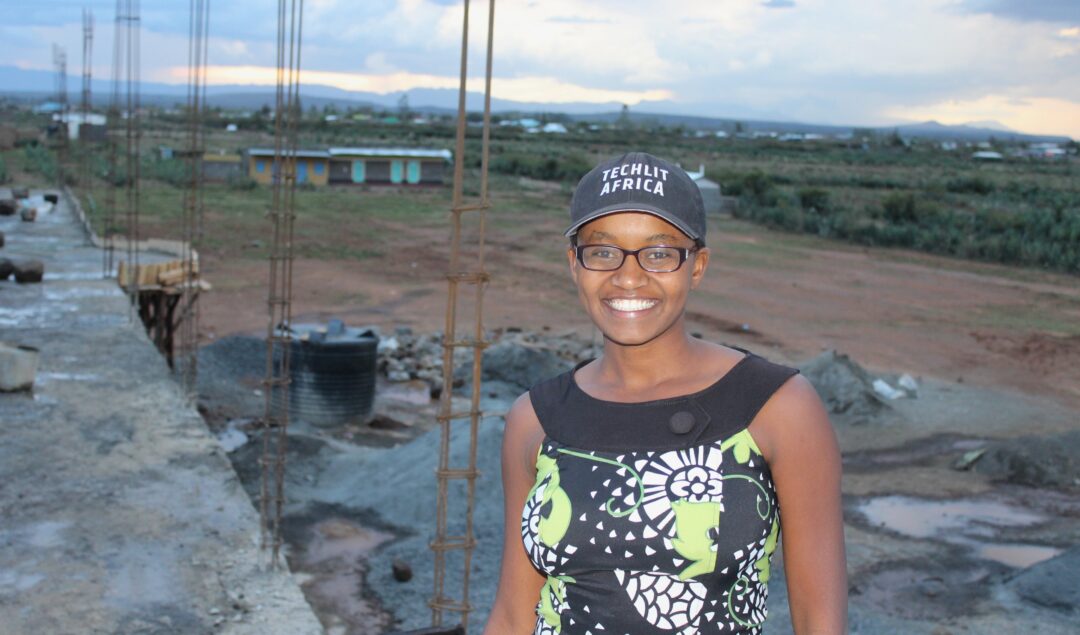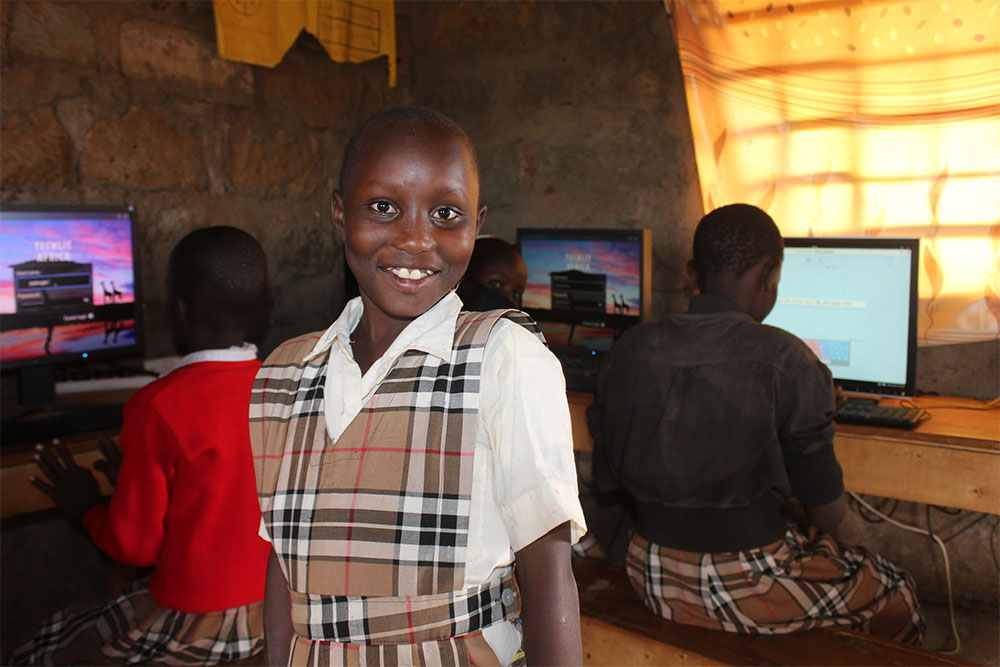Interview: The Black Woman Engineer That Built Dozens Of Computer Labs In Kenyan Schools Using Recycled Tech From The US

TechLit Africa redistributes recycled technology to build computer labs in African schools. With 4,000 students and 20 teachers, the organization has built 10 computer labs in rural Kenya and is working on the next 100 computer labs. Nelly Cheboi, who grew up in a poor rural village in Kenya, landed a full scholarship to study computer science at Augustana College in Illinois and later built a school in Kenya, Zawadi, where she then started TechLit Africa.
The program is unique because it teaches relevant classes; they hire local teachers to make sure of it. In addition, the team trains its teachers to run the computer labs in their community, who meet every day to improve their classes.
It was founded by Cheboi, a 29-year-old whose living situation in Kenya was dire. Circumstances forced Cheboi to raise her younger sister when she was just nine years old – cooking, cleaning, and taking on the role of a second mother.
It was when she moved to the states, thanks to the help of a school scholarship, that she realised that the little she was earning from her day job could go a long way in Kenya. So she built a school and then she took things further and built, alongside her business partner, dozens of computer tech hubs.
But her journey wasn’t easy. Having to navigate ‘bro culture’ while living and working at an engineering firm in the states to being told she was being too pushy and aggressive during meetings – Nelly had to pave her own pathway making hard choices like leaving her first job for the sake of her mental health.
Nelly, tell me three words you would use to describe yourself
I am ‘biased towards action.’
You have made a lot of impact and I am truly in awe of what you have done – but let’s take it all back to the beginning. I’m curious to know a bit more about your life before becoming a founder.
I grew up here in Kenya, not knowing anything about computers. I first used a computer when I was 18 when I was applying for scholarships in the US. So although I didn’t know what I wanted to do in my life – I always knew that I wanted to find sustainable solutions towards poverty.
I grew up in poverty watching my mom struggle just to put us through school, and often we’ll go to bed hungry. I think it’s safe to say I didn’t even have a child because I was helping my mom with whatever business she was running or herding cattle or cooking for my sister.

So I really, I used to imagine what life was like just outside my go-to. I kept thinking that there is no way that all the kids in the world go through these challenges. So I used to imagine a much better life for my mom and kids growing up in places like Mongolia, and I guess I just used to want to explore the world.
But the only thing I had was textbooks. So I would consume all these textbooks, look at pictures, read about stories, read about newspapers.
So before launching TechLit – you actually built the school first. Tell me a bit about that
So I came up with this idea to build a school, and the idea for this school was mainly focused as being a source of income for the family. The kids would go to this school and pay about $10 a month, and that money is enough to keep the school running, pay for the teachers, pay for food by stationaries, whatever was left leftover could support my family.
And ever since, I never needed to keep them.
But it was when I was building the school that it finally sunk in that computer science and IT would be an important aspect of education that I needed to implement so I decided to start Techlit separately. So I have two programs our school, Zawadi, and our computer labs Tech Lit they’re separate but they all go to the same mission and that is equipping young children with the necessary skills to make it in life and secure remote or location jobs.
The school has many different types of courses from hair and makeup to more academic vocational courses while TechLit focuses solely on providing schools with computer labs where IT and computer science can be taught.
What you’re doing is incredible but how do you do it all?
I think because I know firsthand how awful poverty is and I see it all the time here – that is what fuels me. It’s the most dehumanising experiences, like it’s so sad what a lot of children go through so when I compare that to some of the challenges I face now as a founder for example not getting replies back to my emails. That’s nothing compared to the issues taking place here. So you have to keep remembering your mission and what your goal is and just keep going.

Do you work on this full time?
No I have a full time job right now. The job helps me with funding the school – I’ve built that from my pocket.
Lets talk about being a young woman in the STEM sector
So in the beginning, when you don’t have anything to show for it, I think it’s very common for someone to see me and just see all passion, but will they actually invest? So a lot of them say ‘oh, wonderful story, you know, you’ve got this But they don’t want to invest or commit yet. But that doesn’t really bother me, because it’s fine in a year or two once I’ve proved them wrong they usually come back.
Sometimes people tell me I’m “too ambitious” and yeah I am very ambitious but there’s nothing wrong with that. But I tend to ignore those people who doubt my team or who tell us we’re thinking too big and I tend to work with people who say, ‘how can I help? What do you need help with, right now.’



